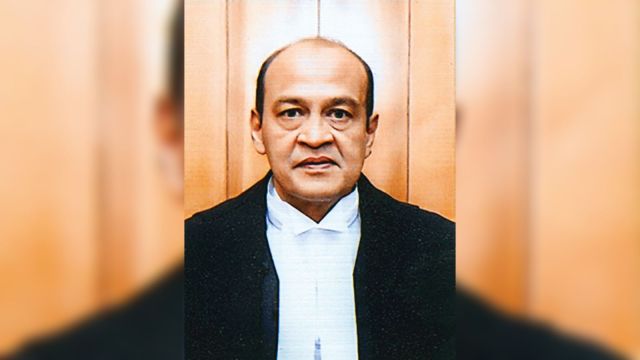
The episode related to Justice Yashwant Varma has invited questions related to judicial integrity. However, given the extraordinary nature of the case and gaps in the investigative process, larger questions about constitutional first principles have taken centre stage.
In his written response on March 22 to the Chief Justice of Delhi High Court, the judge has denied ownership of the cash and claimed that he has no knowledge of how the money found its way to a store room in his official residence. He has submitted that neither he nor any member of his family has anything to do with the burnt currency notes. He has further stated that the store room in which the notes were found was easily accessible to members of the staff. Justice Varma has also hinted at a possible conspiracy.
The prompt in-house inquiry initiated by the Chief Justice of India is welcome. However, the withdrawal of judicial work from the judge and his transfer to the Allahabad High Court are punitive and have preceded a finding of judicial misconduct by the Inquiry Committee. This goes against Paragraph 7(ii) of the In-House Inquiry procedure (1999) against a high court judge. It states that judicial work can be withdrawn from the judge only after a finding of grave judicial misconduct. The unravelling of truth in this case should be consistent with the principles of legal due process and the presumption of innocence — a recognised human right (Sahara) which cannot be compromised to satiate retributive impulses.
The competence of a fact-finding inquiry committee to establish the alleged misconduct of Justice Varma to justify harsh punitive consequences in the interim, is questionable. Whether the judge can be expected to establish his innocence — since, in an action initiated at the highest judicial level, the onus of proving innocence will de facto shift onto him — is a pertinent question. Also, will Justice Varma have an effective judicial recourse against a possible adverse finding by the Inquiry Committee appointed by the CJI? It is doubtful that the Inquiry Committee will subserve the objective of the in-house procedure of ensuring “a safeguard for the members of the higher judiciary from being maligned or subjected to vilification…”, while “making them accountable for their conduct”.
The pursuit of truth in the Justice Varma episode should be consistent with the principles of fair administration of justice. This troublesome case should be a moment to coherently reaffirm the Constitution’s conception of justice and dignity for all. As the poet and Francophone Aimé Césaire said, “a civilisation that plays fast and loose with its principles is a dying civilisation.”
Independent of the merits of this case, a national debate about the advisability of an alternative judicial appointments mechanism has been triggered. The experience underlined the need to redefine judicial independence beyond the exclusive remit of judges to appoint their colleagues. Controversial judicial appointments by the collegium demonstrate that the current system offers no guarantee of the finest lawyers and judges being elevated to the high courts and the Supreme Court. At the same time, it cannot be denied that some of the nation’s most eminent judges were appointed when the power of judicial appointments was vested with the central government. The Supreme Court’s striking down of the National Judicial Appointments Commission (NJAC) as unconstitutional on the premise that its composition ensured the government’s dominant say in the appointment of judges is a flawed extension of the doctrine of judicial independence. The highest constitutional court need not be distrustful of the processes of democratic governance and is expected to defer to the policy choices of elected governments based on a broad political consensus. In fact, this principle has been repeatedly affirmed by the apex court itself in several cases. On a larger jurisprudential basis relating to constitutional democracies, the Court may well ask the question asked by the legal scholar Pamela S Karlan, “…whether and for how long the people will maintain their confidence in a Court that has lost the confidence in them and their leaders…” .
The writer, a former Union Minister for Law and Justice, is senior advocate, Supreme Court of India. Views are personal